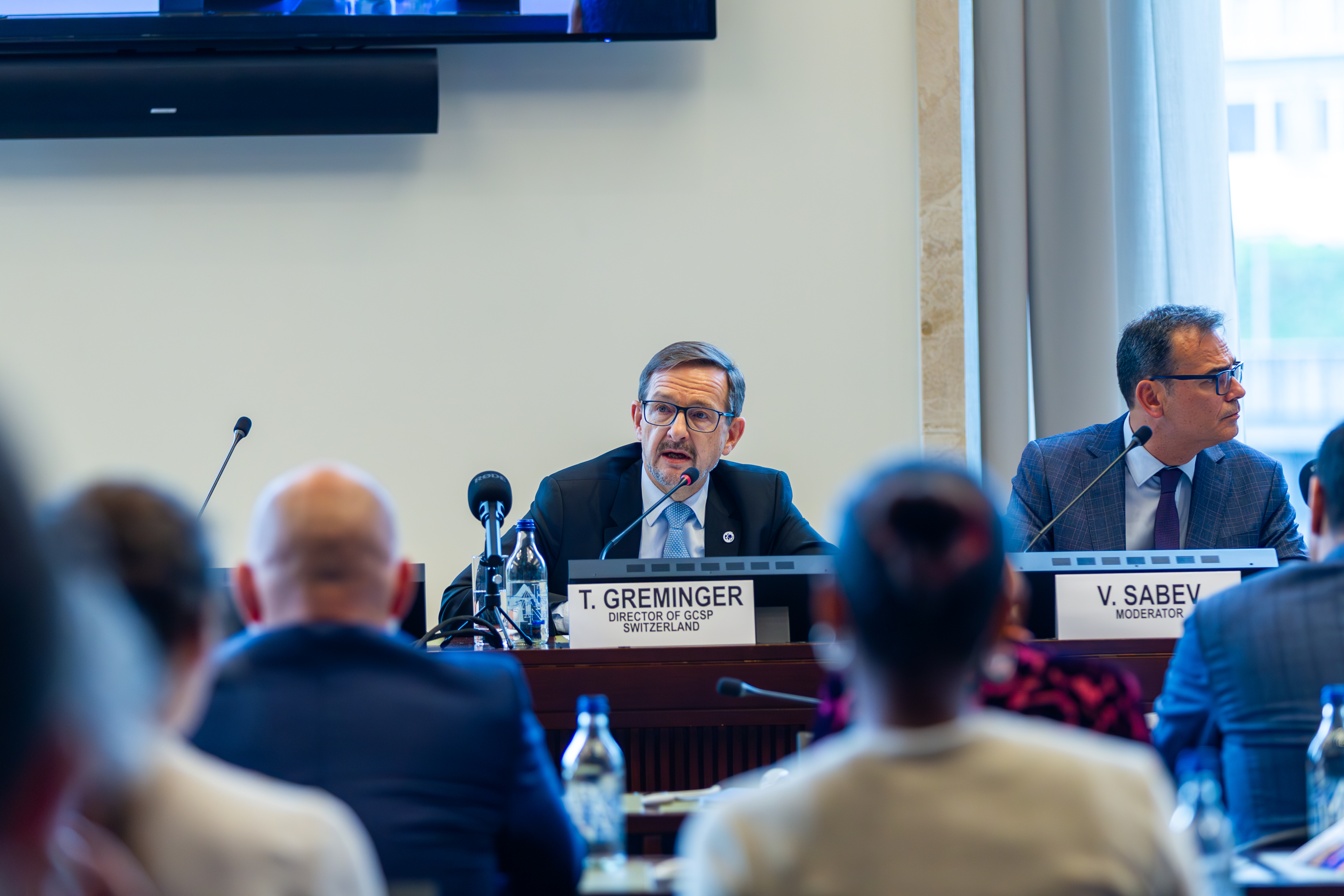
At the the international forum “War, Peace, and Neutrality” at the UN in Geneva on October 10, Ambassador Thomas Greminger, the Director of the Geneva Centre for Security Policy (GCSP) and former OSCE Secretary General congratulated the Geneva Center for Neutrality, the Permanent Mission of Turkmenistan, and the Greater Caspian Association for organizing it, and shared his vision on the neutral countries role today.
About modern trends
The world needs bridgebuilders. In a polarized and fragmented world, neutral countries can play an outsized role in promoting dialogue. Think back to fifty years ago. At that time, neutral and non-aligned countries such as Finland, Switzerland and Yugoslavia played a vital part in promoting dialogue between East and West. Dialogue that resulted in the signing of the Helsinki Final Act and the launching of the CSCE ‘Helsinki process’. Neutral and non-aligned countries were also instrumental in bridging the divide between East and West through the CSCE and OSCE, and in developing the OSCE acquis. It is perhaps no surprise that in the current polarized environment, there is a preference for selecting neutral countries, such as Malta last year and Switzerland next year, to chair the OSCE.
Unfortunately, the neutral and non-aligned movement has lost its influence. Today, the trend is more towards selective multi-alignment rather than non-alignment. Emerging powers engage with various partners across geopolitical divides and choose cooperation à la carte rather than formal alignment.
Meanwhile, the number of formally neutral countries is diminishing as great power rivalry forces some countries to join alliances in order to defend their sovereignty.
Great power competition is also causing some countries to reassess what it means to be neutral, and the pressure to “take sides” is growing. Indeed, many states, including Switzerland, find themselves in a real and pressing dilemma to preserve their independence and flexibility while remaining engaged in international affairs. As a result, neutrality is being adapted and reshaped to meet the realities of new dynamics and competitions. In this unpredictable world, neutrality is a strategic balancing act, one that must constantly be reassessed in light of new shifts, risks, and responsibilities.
I must say, as a Swiss diplomat, it is sometimes a tough task. I know from my own work that if one promotes the idea of dialogue between Russia and the West, NATO countries accuse you of being “pro-Russian”, while counterparts in Moscow complain that because Switzerland has sanctioned certain Russian individuals and entities because of the war in Ukraine, it can no longer be considered neutral. That said, neutrality can be empowering in the current environment. It enables states to preserve their strategic autonomy in the face of external pressures. It is a way for small and medium powers, in particular, to navigate great power competition. By being neutral, states can engage on their own terms, refusing to be instrumentalized, to be entangled in conflicts against their will, while maximizing agency.
Neutral, non-aligned and multi-aligned countries should band together
However, and I really want to stress this point, neutrality does not mean being a passive observer of international affairs. Being neutral doesn’t mean disengaging or being indifferent. On the contrary. Neutral countries have a strong vested interest in upholding an international order based on the rule of law. Defending that order as well as promoting international peace and security is what is often referred to as “positive” or “constructive” neutrality. Indeed, neutral, non-aligned and multi-aligned countries should band together to reinvigorate multilateralism and strengthen international cooperation. We need new alliances to do that! Together, we can make the difference between war and peace.
In fact, neutral countries are well placed to play a proactive role in promoting dialogue and conflict prevention. This is explicitly mentioned in the UN General Assembly resolution of March 2025 on the “Permanent neutrality of Turkmenistan”. That resolution encourages the effective use of the territories of neutral countries for hosting peace talks and conflict resolution and settlement processes, including through the establishment of dedicated mediation facilities.
That is certainly what we do here in Switzerland through International Geneva, including at GCSP where we host Track 2 diplomatic dialogues on a wide range of topics, including Syria, the war in Ukraine, the Arctic, or nuclear arms control, to mention just a few. At a time when multilateral organizations are gridlocked, we provide a safe space for bringing all sides together and for exploring cooperative approaches. Fortunately, there is also the Geneva Center for Neutrality – the co-host of this event, which has quickly emerged as an important resource for ideas and debate about neutrality in the modern world. I encourage Turkmenistan and other neutral countries to further develop their capacities and profile as peace mediators, drawing on the experience and partnerships here in Switzerland. We need more bridge builders!
In short, neutral countries cannot stand on the sidelines when it comes to war and peace. While they should not intervene militarily, they can create space for dialogue, uphold international law and humanitarian norms, support peace processes, and ensure that their neutrality serves not only themselves but the broader international community.
